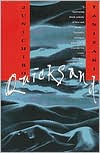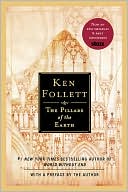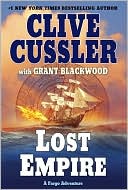Quicksand
From one of the greatest writers of twentieth-century Japan comes a silkily nuanced novel of erotic gamesmanship and obsession. The voice--cultured, ingenuous, and with a touch of coquetterie--is that of Sonoko Kakiuchi, an Osaka lady of good family married to a dully respectable lawyer.
Search in google:
From one of the greatest writers of twentieth-century Japan comes a silkily nuanced novel of erotic gamesmanship and obsession. The voice--cultured, ingenuous, and with a touch of coquetterie--is that of Sonoko Kakiuchi, an Osaka lady of good family married to a dully respectable lawyer.Publishers WeeklyOriginally published in 1947, this fine, startling novel by the renowned Japanese writer (1886-1965) appears for the first time in English. Sonoko Kakiuchi, the bored and willful upper-class wife of an Osaka lawyer, recounts the story of her desperate love in the year 1927 for a willowy young woman named Mitsuko. When Sonoko discovers the presence in Mitsuko's life of a man, the elusive Watanuki, she is surprised by enormous feelings of jealousy and soon finds herself ``sinking deeper and deeper into the quicksand'' of the couple's lies. But Sonoko is no saint: in an attempt to gain time and attract sympathy she fakes a suicide attempt that draws her husband into the affair. The romantic quadrangle lurches to a tragic, quintessentially Japanese conclusion. Tanizaki's prose, seamlessly translated by Hibbett, is as icy and lovely as a winter morning. It's also interesting to note how the author propels the plot and develops characters through their use of pharmaceuticals, a device he later employed with great effect in his masterpiece, The Makioka Sisters . This novel will be published simultaneously with two Tanizaki novellas also previously untranslated (see below). (Feb.)
\ Publishers Weekly\ - Publisher's Weekly\ Originally published in 1947, this fine, startling novel by the renowned Japanese writer (1886-1965) appears for the first time in English. Sonoko Kakiuchi, the bored and willful upper-class wife of an Osaka lawyer, recounts the story of her desperate love in the year 1927 for a willowy young woman named Mitsuko. When Sonoko discovers the presence in Mitsuko's life of a man, the elusive Watanuki, she is surprised by enormous feelings of jealousy and soon finds herself ``sinking deeper and deeper into the quicksand'' of the couple's lies. But Sonoko is no saint: in an attempt to gain time and attract sympathy she fakes a suicide attempt that draws her husband into the affair. The romantic quadrangle lurches to a tragic, quintessentially Japanese conclusion. Tanizaki's prose, seamlessly translated by Hibbett, is as icy and lovely as a winter morning. It's also interesting to note how the author propels the plot and develops characters through their use of pharmaceuticals, a device he later employed with great effect in his masterpiece, The Makioka Sisters . This novel will be published simultaneously with two Tanizaki novellas also previously untranslated (see below). (Feb.)\ \ \ \ \ Library JournalGood news for Tanizaki fans: the master Japanese novelist, author of The Makioka Sisters and Some Prefer Nettles (both currently available from Perigee: Putnam. 1981) , is ably represented by two new translations. The two novellas, written in 1932 and 1949-50, explore Tanizaki's recurrent theme of obsessive love. Both are narrated in flashbacks by sons, as one retells with mounting suspense his father's unusual arrangement in the name of love and the other confronts issues of trickery and honor that force a man to give up what he treasures most, his wife. Both are suffused with the atmosphere and traditions of ancient Japan yet depict a decadent society that seems very modern. Tanizaki's last major novel, Quicksand, which is particularly difficult to translate, takes place in 1920s Osaka and describes love--heterosexual, lesbian, adulterous, conjugal--in its multifarious convolutions of impotence and obsession, frankness and shame, happiness and tragedy. The four main characters indulge in the games and schemes of the idle rich obsessively directed by one of them: the beautiful and cruel, yet loving and lovable, Mitsuko. Although not equal to his two finest novels, these long-overdue publications are highly recommended for admirers of Tanizaki's work.-- Kitty Chen Dean, Nassau Coll., Garden City, N.Y.\ \








